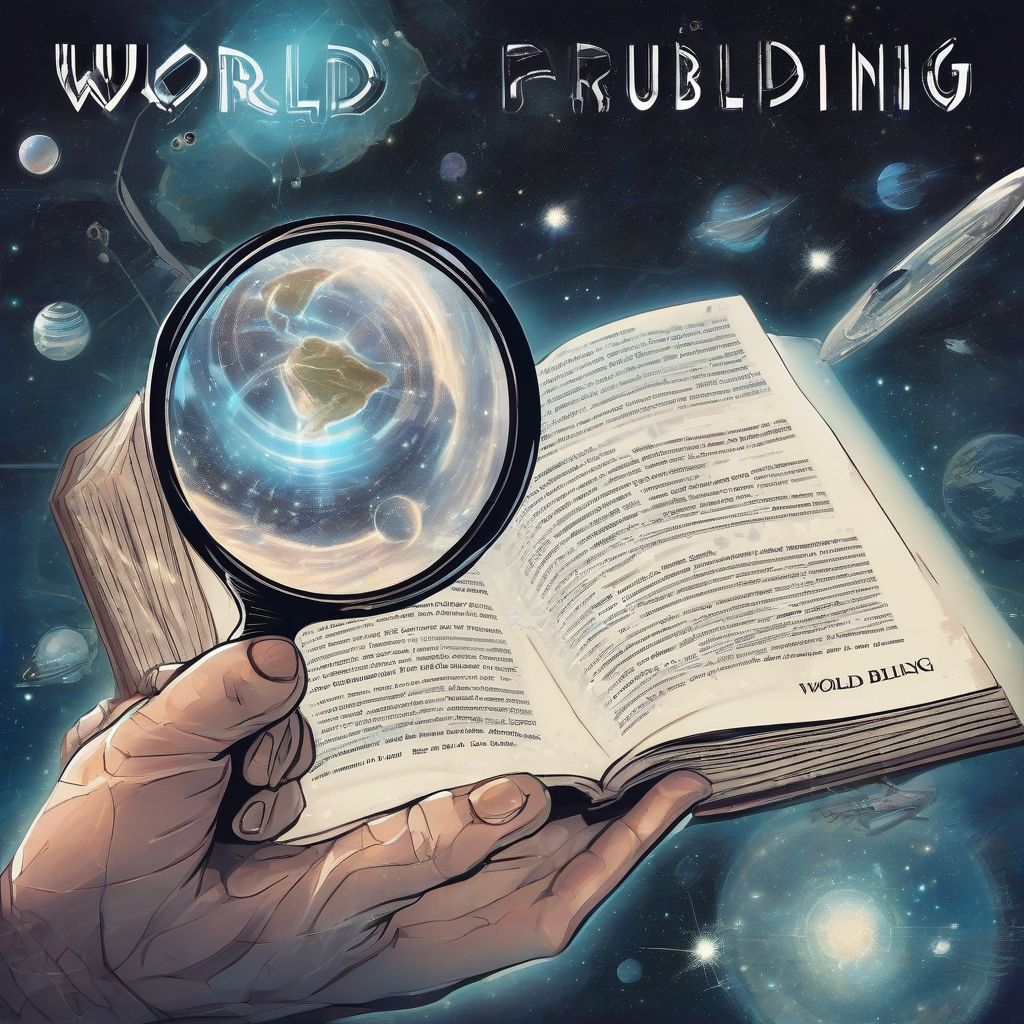Imagine diving into a science fiction novel and finding yourself not just reading, but truly inhabiting a world unlike anything you’ve ever encountered. The planets shimmer with alien beauty, the societies hum with unfamiliar customs, and the technology bends the very fabric of reality. This immersive experience, this feeling of being transported to another realm, is the magic of world-building, and it’s a crucial element that readers and reviewers alike consider when exploring the vast universe of science fiction literature.
Building Universes, Brick by Brick: Why World-Building Matters
In science fiction, world-building is more than just describing exotic landscapes or inventing fantastical creatures. It’s the art of crafting believable, intricate societies with their own histories, cultures, rules, and consequences. It’s about creating a sense of place that feels real, lived-in, and integral to the story being told.
Think of iconic science fiction worlds like Frank Herbert’s Arrakis in “Dune” – a harsh desert planet with a complex ecological system and a rich cultural tapestry woven around the precious spice melange. Or consider the sprawling metropolis of Coruscant in the “Star Wars” universe – a planet-city teeming with diverse species, political intrigue, and advanced technology. These worlds are not merely backdrops; they are characters in their own right, shaping the narrative and leaving a lasting impression on the reader.
The Reader as Explorer: How World-Building Enhances the Reading Experience
World-building, when done well, has the power to elevate a science fiction novel from a simple story to an unforgettable journey. Here’s how:
- Immersion and Escapism: A well-constructed world pulls readers out of their everyday lives and drops them headfirst into the heart of the story.
- Emotional Connection: By making the world feel real, authors allow readers to connect more deeply with the characters and their struggles.
- Heightened Stakes: When the rules of the world are clearly defined, the consequences feel more significant, raising the stakes for the characters and the reader alike.
- Intellectual Stimulation: Complex world-building invites readers to think critically about societal structures, technological advancements, and the human condition.
What Reviewers Look For: The Role of World-Building in Book Reviews
Reviewers, often avid science fiction fans themselves, understand the power of immersive world-building. When assessing a novel, they pay close attention to:
- Originality: Is the world unique and imaginative, or does it feel derivative of other works?
- Consistency: Do the rules of the world make sense and remain consistent throughout the story?
- Depth and Complexity: Does the world feel like a fully realized society with its own history, culture, and complexities?
- Impact on the Narrative: Does the world-building enhance the plot, character development, and overall themes of the story?
 Science Fiction Book Review
Science Fiction Book Review
Beyond the Spaceships and Aliens: World-Building as a Reflection of Our Own
While science fiction often transports us to distant galaxies, the most impactful world-building often holds a mirror to our own society. By exploring fictional worlds, authors can examine real-world issues like social injustice, political corruption, or the ethical implications of technology.
For example, Margaret Atwood’s “The Handmaid’s Tale” presents a dystopian future where women are stripped of their rights. While the setting may be fictional, the novel’s exploration of gender roles and societal control resonates deeply with contemporary readers.
Similarly, Octavia Butler’s “Parable of the Sower” uses a post-apocalyptic world ravaged by climate change and social unrest to explore themes of survival, community, and the power of hope.
By tackling real-world anxieties and aspirations through the lens of science fiction, authors can offer unique perspectives, spark critical conversations, and even inspire change.
The Verdict is In: Why World-Building Matters in Science Fiction Book Reviews
In the realm of science fiction book reviews, world-building is not just a nice-to-have; it’s a make-or-break element. A richly imagined world can elevate a good story to a great one, while a poorly constructed world can leave readers feeling lost and unfulfilled.
Reviewers recognize that a well-built world is the foundation upon which a compelling science fiction narrative stands. It’s the difference between reading a story and truly living it, between observing events and feeling their impact deep within your bones.
So, the next time you pick up a science fiction novel, pay attention to the world the author has created. Let yourself be transported to distant planets, immerse yourself in alien cultures, and explore the limitless possibilities of the human imagination.
What are your favorite examples of world-building in science fiction? Share your thoughts in the comments below!
[amazon bestseller=”science fiction books”]
